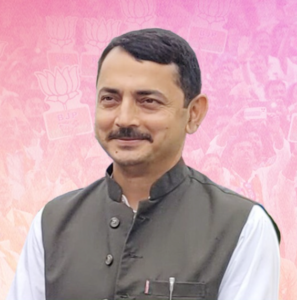 Shivang Satya Gupta
Shivang Satya Gupta
Jammu, Sept 08: Amidst the rising political heat in the run up to Jammu and Kashmir’s maiden assembly election post its reorganisation into a Union Territory, an otherwise-lazy-Sunday marked a remarkable development in the Bharatiya Janata Party (BJP)’s list of 10 candidates, which had written all over it, the top leadership’s serious intentions in ascertaining party’s big victory in the forthcoming electoral contest.
Having observed all the developments over the last three weeks, it is safe to say that of the major parties contesting the Assembly elections, the BJP appears to be consolidating its position in the J&K with each passing day indicating a surge in its electoral prospects.
On Sunday, the party’s Central High Command has demonstrated its commitment to securing a substantial victory by unveiling the sixth list of 10 candidates for various Assembly Constituencies (AC), signalling a strategic push for the upcoming polls.
In Jammu division, the party has given ticket to dynamic leader and former MLA, R S Pathania to contest from Udhampur East assembly constituency; Dr Bharat Bhushan from Kathua (SC); Rajeev Bhagat from Bishnah (SC); from Bahu AC constituency BJP has fielded Vikram Randhawa; and from Marh (SC), Surinder Bhagat will fight on BJP mandate.
Similarly, in Kashmir, Mohd Idrees Karnahi will be contesting from Karnah AC; Ghulam Mohammad Mir from Handwara; Abdul Rashid Khan from Sonawar AC; Naseer Ahmad Lone from Bandipora; and Faqir Mohammad Khan from Gurez (ST) AC.
Sunday’s list also dismisses the chaos and noises emerging from certain quarters over the recent week as the party’s top leadership has reposed faith in leaders of great credibility, especially of the stature like Pathania, someone who has a strong support across the public.
Needless to say, any deviation in the mandate could have spelled disaster for the saffron party.
This decision of BJP has effectively left other political parties scrambling to maintain their footing. The response—rather the lack thereof –from rival parties, particularly the National Conference (NC) and Indian National Congress (INC), indicates a growing concern over their diminishing influence.
Moreover, the entry of separatist leaders into the electoral fray in Kashmir is being viewed as a potential game-changer, since it could weaken the position of regional parties that have historically held sway in Kashmir.
As campaigning intensifies, the BJP continues to articulate its vision for J&K, promising development, statehood, end to terrorism, peace and stability. The party’s grassroots mobilization efforts are reported to be gaining traction, with local leaders rallying support for its candidates across constituencies.
The current political climate suggests that the BJP is effectively capitalizing on the shifting dynamics in Kashmir Valley, while already having a strong threshold in the Jammu region.
With some separatists contesting in Assembly polls in Jammu and Kashmir, Union Minister and senior party leader Jitendra Singh while sharing stage with Union Home Minister Amit Shah yesterday asserted that those who decide to join the national mainstream cannot be deprived of this democratic opportunity.
Singh also said the alliance between the NC and the INC is ‘just for the sake of power’ and it has nothing to do with ‘national interest’.
“(NC founder Sheikh) Abdullah after spending 12 years in prison came out the same way and became the chief minister. We cannot have two different yardsticks,” Singh, the minister of state in the Prime Minister’s Office, stated while replying to queries on separatists entering the electoral fray.
The Party’s endorsement of separatists participating in mainstream politics has sent ripples through the political landscape of Kashmir.
It not only reflects the BJP’s confidence but also underscores the party’s strategy of broadening its appeal in a historically complex political environment. This move could further galvanize BJP supporters while posing significant challenges to the NC and INC’s pre-poll alliance.
The participation of separatist leaders is seen as an indication that the regional parties may have much to lose, thus intensifying the competition in the upcoming elections.
The BJP’s growing confidence and strategic manoeuvring could reshape the political landscape here.



